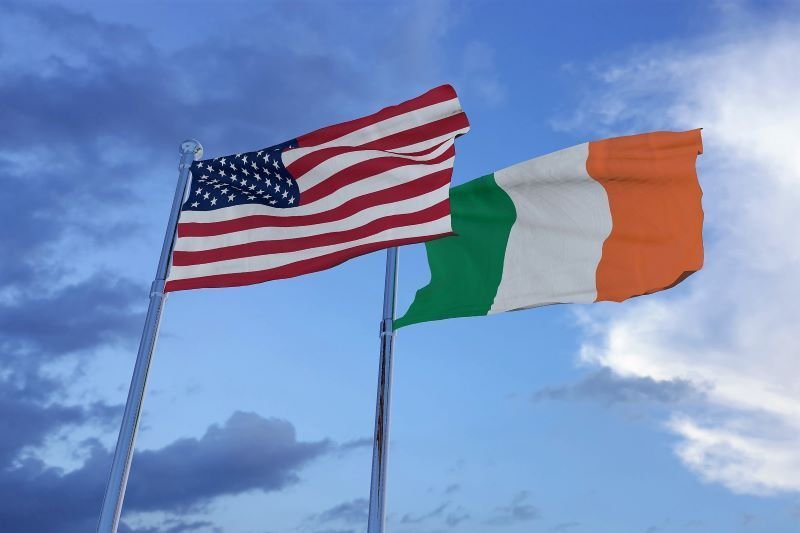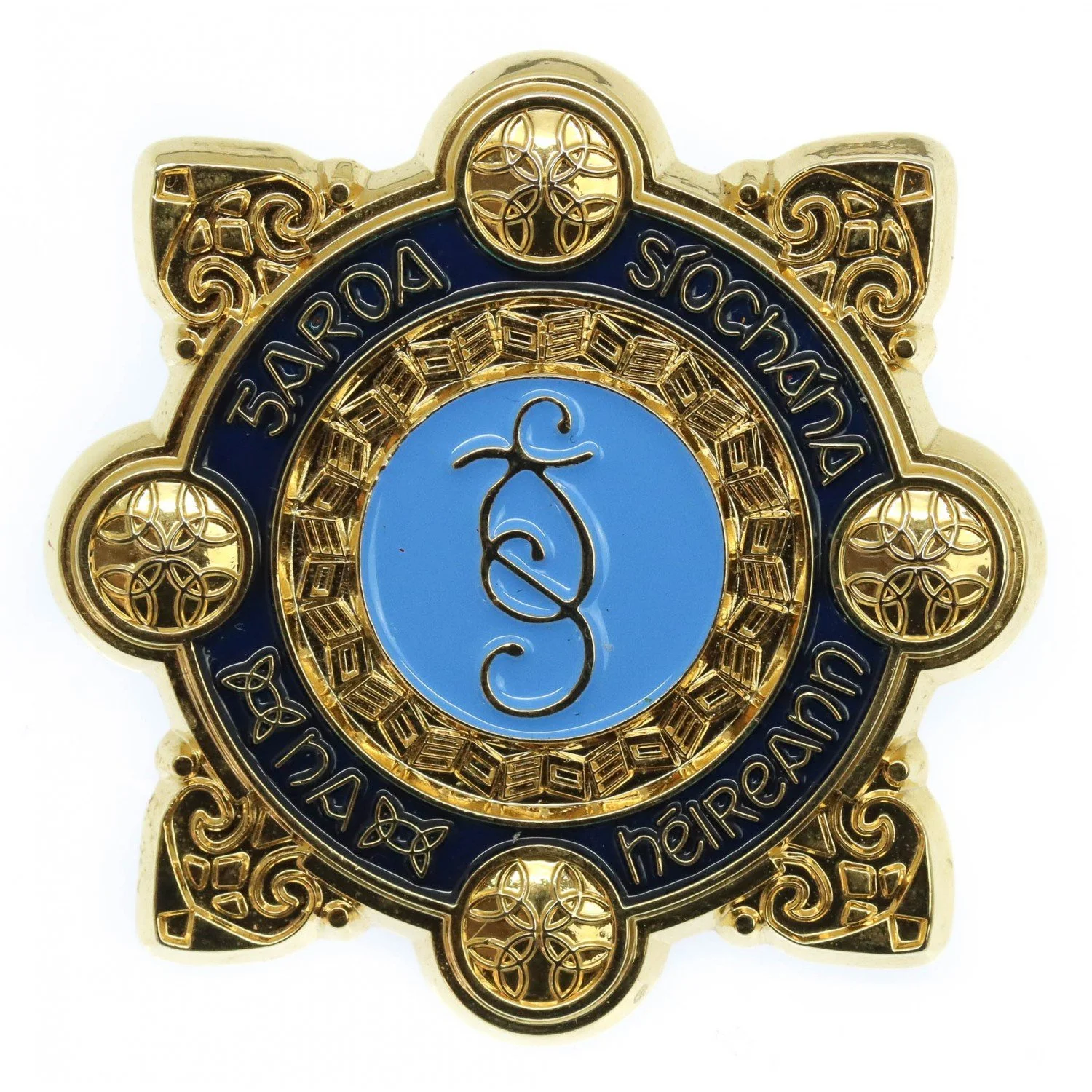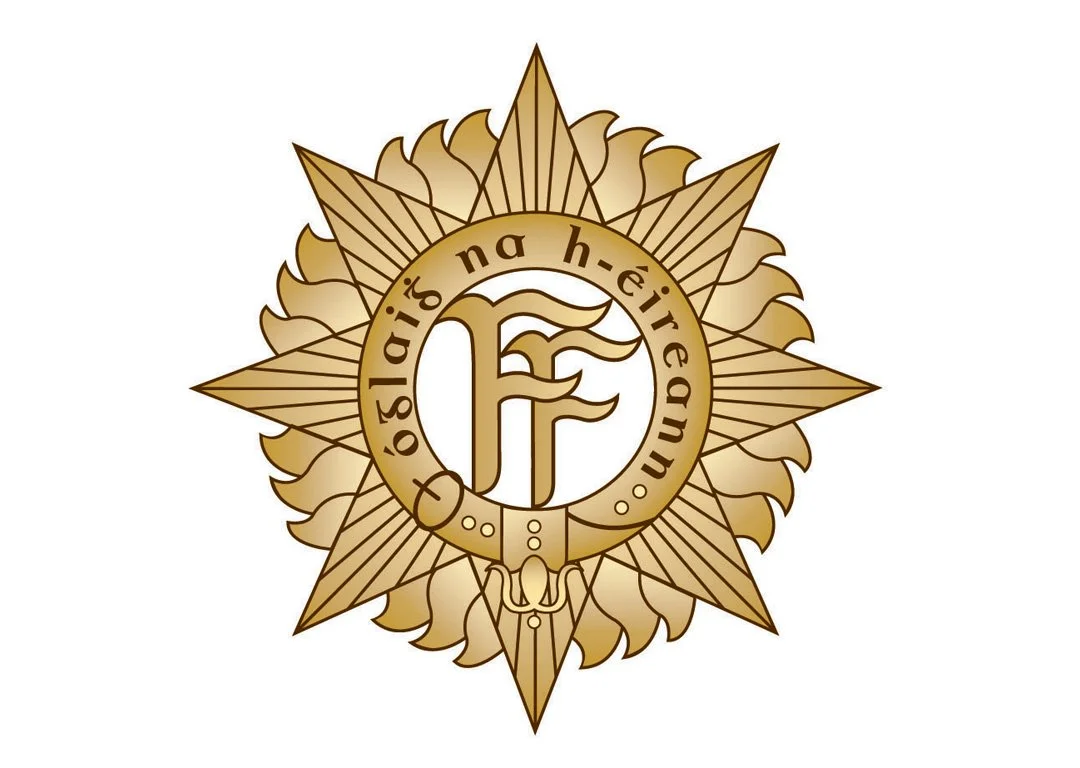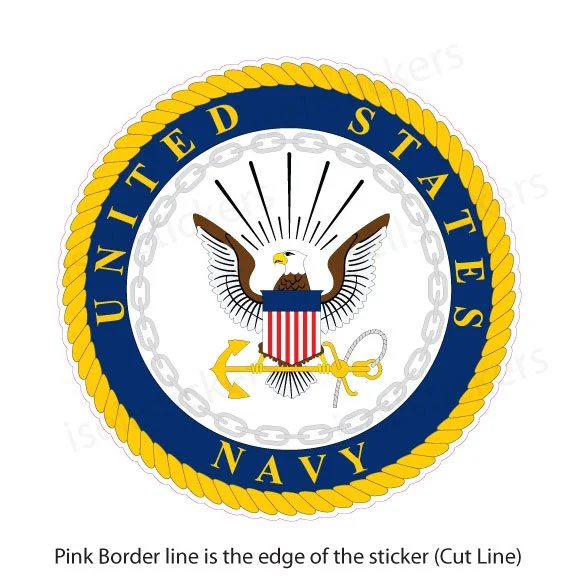
Family Military & Police Service
-

Daniel Cahill
Date of Birth, c. 1870, Shrone, Rathmore, County Kerry, Ireland
Police Service: (1890’s):
New York Metropolitan Police Force
My mother’s uncle, and my great uncle. He was born around 1870, and immigrated to America from Shrone, Kerry, probably around 1888. He joined the New York City Police Department then known as the Metropolitan Police Force around 1890, before the turn of the 19th Century.
-

John Denis Cahill
Date of Birth: Dec. 20, 1896, Shrone, Rathmore, Co. Kerry, Ireland
Military and Police Service: (1916-1950)
• Irish Republican Army
• Irish Free State Army
• Irish National Police Force (An Garda Siochana)
My mother’s older brother, my uncle, joined the Irish Republican Army (E Company, 5th Battalion, Kerry No. 2 Brigade), during Ireland’s War of Independence with the rank of “Volunteer”, and served in actions against the British in Kerry and West Cork
-

Daniel Cahill
Date of Birth: August 24, 1899, Shrone, Rathmore, Co. Kerry, Ireland
Military and Police Service: (1916-1954)
• Irish Republican Army
• Irish Free State Army
• Irish National Police Force (An Garda Siochana)
After independence was won, he, along with his brother John, became members of the Irish Free State Army (Irish National Army) and after the Irish Civil War, became policemen in the Irish Free State’s newly formed national police force
-

William Francis Brennan
Date of Birth: November 25, 1903, Clara, Co. Offaly, Ireland
Military Service: (1917-1923)
• Irish Republican Army
• Irish Free State Army (Irish National Army) • New York State Guard.
My father, your great grandfather, joined the Irish Republican Army as a young teenager with the rank of “Volunteer”, during Ireland’s War of Independence against Great Britain, which took place from 1916 to 1921
-

John Joesph Brennan
Date of Birth: September 26, 1928, Bronx, New York
Military and Police Service: (1946-1977)
• United States Navy
• Washington, D.C. Metropolitan Police Department • New York City Police Department.
My brother John (Jack), your great uncle, served in the United States Navy, enlisting on January 8, 1946, at the age of 17, as a Seaman After basic training , he was sent to attend the Navy Firefighter School at Naval Station Norfolk, Virginia. Promoted to Seaman First Class, he went to sea aboard the newly commissioned heavy cruiser, the USS Toledo.
-

William Christopher Brennan
Date of Birth: December 24, 1929, Bronx, New York
Military Service: (1948-1951)
• United States Air Force
My brother Will, your great uncle, joined the United States Air Force at the age of 18, enlisting on January 1, 1948. After basic training at Lackland Air Force Base in San Antonio, Texas, he was sent overseas to occupied Germany and stationed at the U.S. Air Force Base at Rhein-Main in Frankfurt.
-

Dennis Patrick Brennan
Date of Birth: February 16, 1935, Bronx, New York
Military and Police Service: (1953-1983)
• United States Marine Corps
• United States Marine Corps Reserve • New York City Police Department
Your grandfather. He joined the United States Marine Corps at the age of 18, as a Private and served for three active and five reserve years of duty before being Honorably Discharged on September 30, 1961. He joined the New York City Police Department in 1957, and on May 24, 1962, he was transferred to the Detective Bureau.
-

Kevin Vincent Brennan
Date of Birth: December 20, 1947, Bronx, New York
Military Service: (1968-2000)
• United States Marine Corps Reserve • New York Army National Guard
• United States Army
My brother Kevin, your great uncle, and the youngest in the family served briefly in the United States Marine Corps Reserve as a Private, and the New York Army National Guard as a Captain,— when he obtained a regular commission as a Captain in the United States Army (Infantry). He rose to field grade officer in the United States Army, retiring as a Major, after twenty years of total active service.
-

Dennis Patrick Brennan, Jr.
Date of Birth: December 14, 1957, Bronx, New York
Law Enforcement Service: (1982-2004)
• New York City Department of Correction • New York City Police Department.
My oldest son, and your uncle, Dennis, Jr., joined the New York Department of Correction in August of 1982, as a Correction Officer and worked at the Correction Department’s Prison on Rikers Island in Queens, before leaving to join the New York City Police Department in January of 1983.
-
-

Daniel Thomas Brennan
Date of Birth: June 16, 1960, Nassau County, New York
Police Service: (1983-2003)
• New York City Police Department
My nephew and your great uncle Jack’s Son (your parent’s first cousin), joined the New York City Police Department on January 3, 1983, and when sworn in, was issued Patrolmen’s Shield No. 811 (proudly wearing the same shield his father wore).
-
Additional Notes on Family Military & Police Service
-
Note 1
All if not most of my brothers and one sister remember Great Uncle Danny and his stories…
-
Note 2
The Black and Tans, a term used to describe the Reserve or Auxiliary branch of the British Royal Irish Constabulary…
-
Note 3
The youth organization “Na Fianna Eireann” was founded on nationalistic, educational and cultural Irish identity principles
-
Note 4
During the period of the Berlin Airlift, the beginning of the Cold War in earnest, Harry Truman was President…
Daniel Cahill
My mother’s uncle, and my great uncle. He was born around 1870, and immigrated to America from Shrone, Kerry, probably around 1888. He joined the New York City Police Department then known as the Metropolitan Police Force around 1890, before the turn of the 19th Century. Since Tammany Hall Irish politics controlled City Hall, and before Civil Service Rules had been established, he would have been given his police job because he was a recent Irish immigrant, that he was around six foot five, and that he looked every bit the part. He was a Patrolman when high helmets were worn (grey in winter and blue in summer) and when the police force in 1896, first began to standardize firearms training and issuing members .32 Caliber Colts as regulation revolvers. When asked about his police experience he was reticent to talk about it (See Note 1). During Uncle Dan Cahill’s time, it was a difficult era for the force before and during the period when Theodore Roosevelt took over as Police Commissioner in 1895. Roosevelt completely revamped the department by doing away with political patronage appointments, and implementing other measures for change. After leaving the department, Dan went back to Kerry, but could not take the weather, so he returned to New York. A bachelor, he lived well into his nineties, dying in Morrisania Hospital in the Bronx in the early 1960’s.
John Denis Cahill
My mother’s older brother, my uncle, joined the Irish Republican Army (E Company, 5th Battalion, Kerry No. 2 Brigade), during Ireland’s War of Independence with the rank of “Volunteer”, and served in actions against the British in Kerry and West Cork. John received a medal from the IRA for specific service against the Black and Tans, which the medal’s ribbon denotes by its black and tan colors. John’s name can be found in the IRA Kerry No. 2 Brigade Roster (See Note 2). After independence was won, he, along with his younger brother Dan, became members of the Irish Free State Army (Irish National Army) and after the Irish Civil War, became policemen in the Irish Free State’s newly formed national police force, The An Garda Siochana (In English, “The Guardians of the Peace”), in 1922, which replaced the disbanded British Royal Irish Constabulary. John worked as a Garda Constable (Patrolman), Shield No. 99, in Cork City for some twenty- eight years before retiring due to heart problems in 1950. He died in 1954, at 58.
See John D. Cahill, p. 41, left side, middle of page
Daniel Cahill
My mother’s next older bother, my uncle, joined the Irish Republican Army (E Company, 5th Battalion, Kerry No. 2 Brigade), during Ireland’s War of Independence with the rank of “Volunteer’, and served in actions against the British in Kerry and West Cork. Dan’s name can be found in the IRA Kerry No 2 Brigade roster (See Note 2). After independence was won, he, along with his brother John, became members of the Irish Free State Army (Irish National Army) and after the Irish Civil War, became policemen in the Irish Free State’s newly formed national police force, The An Garda Siochana (meaning in English, “The Guardians of the Peace”), in 1922, which replaced the disbanded British Royal Irish Constabulary. Dan worked as a Garda Constable (Patrolman) in Bray, in County Wicklow, before being promoted to Detective Sergeant where he worked at Garda Headquarters (Bureau of Weights and Measures) in Phoenix Park, Dublin. A bachelor, he retired from the Garda in 1954, with 32 years of service.
William Francis Brennan
My father, your great grandfather, joined the Irish Republican Army as a young teenager with the rank of “Volunteer”, and was a member of “A” Company, 2nd Infantry Battalion, No. 2 Clara Brigade (Tullamore, Kings County, now County Offaly), during Ireland’s War of Independence against Great Britain, which took place from 1916 to 1921. Prior service indicated he was also a Scout in the nationalistic youth organization “Na Fianna Eireann” (In English: Warriors or Soldiers of Ireland). After Ireland won its independence, he then joined the newly formed National Army on May 25, 1922, at the age of 18, Serial No. 20890. Still a “Volunteer”, he was assigned to the Ballymahon Garrison, in County Longford, part of the 1st Midland Division, of the Free State Army, created that year by the new Irish Government. He would then have taken part in the Irish Civil War against the anti-Treaty forces before he was discharged on July 25, 1923, after six years of total service (See Note 3). A year after his discharge from the Irish Army, he immigrated to America in 1924, at the age of 20. In the late 1940’s, he joined and served as a Private in the New York State Guard (Militia), an autonomous but supporting component of the New York State Army National Guard, which takes over all of the New York Army National Guard’s duties, when it is federalized.
John Joseph Brennan
My brother John (Jack), your great uncle, served in the United States Navy, enlisting on January 8, 1946, at the age of 17, as a Seaman (Serial No. 2261100). After basic training at the Naval Training Center at Bainbridge, Maryland, he was sent to attend the Navy Firefighter School at Naval Station Norfolk, Virginia. Promoted to Seaman First Class, he went to sea aboard the newly commissioned heavy cruiser, the USS Toledo (CA-133), as a ship’s firefighter, serving on a number of the Toledo’s deployments. His awards, among others, include the American Area Campaign Medal, and the World War II Victory Medal. After serving almost two years in the Navy, he was Honorably Discharged on November 12, 1947. He was a Veteran of World War II. In 1951, Jack joined the Washington, District of Columbia Metropolitan Police Department and was issued Patrolman’s Shield No. 346, and served two years in the Metropolitan Police Department’s 5th District, while waiting to be called by New York City. In 1953, he was sworn in as a Patrolman in the New York City Police Department and was issued Shield No. 811. His assignments included the 19th Precinct in Manhattan, the 46th Precinct in the Bronx, and Patrol Division Commands in Manhattan and Queens, before retiring from the 105th Precinct in Queens. John was awarded a Commendation Medal for bravery for action while making an arrest for an armed robbery. He retired after 24 years of service.
Seaman First Class John Joseph Brennan’s ship, the heavy cruiser, USS Toledo
William Christopher Brennan
My brother Will, your great uncle, joined the United States Air Force at the age of 18, enlisting on January 1, 1948. After basic training at Lackland Air Force Base in San Antonio, Texas, he was sent overseas to occupied Germany and stationed at the U.S. Air Force (former German Luftwaffe) Base at Rhein-Main in Frankfurt. While stationed there, he took part in the historic and monumental Berlin Airlift of 1948 and 1949, after the Russians closed off the City of Berlin, blocking access to the three Western Allies Sectors of the city, cutting off all supplies to the city’s inhabitants. Air Force C-47’s (DC-3’s) and C-54 Skymasters, were used to drop milk, flour, medicine, coal (and candy), to the beleaguered Berliners. During the airlift, Will worked as an Aircraft Mechanic and in Supply, and while there, he was promoted to Private (Airman) First Class. His awards include the Occupation Medal (Germany), the Berlin Airlift Medal, and the Medal for Humane Action. He received an Honorable (Medical) Discharge on June 1, 1951, after serving on active duty for three and a half years. See Note 4.
An American Air Force plane dropping candy and other necessities to German children during the Berlin Airlift. William (Bill) Brennan, Jr., participated in the Berlin Air Lift Campaign while stationed in Frankfurt, Germany with the United States Air Force
Dennis Patrick Brennan
Your grandfather. He joined the United States Marine Corps at the age of 18, enlisting in August, and sworn in on October 1, 1953, as a Private (Serial No. 1422435) and served for three active and five reserve years of duty before being Honorably Discharged on September 30, 1961. During his three years of active duty he was promoted to Private First Class and Corporal (E-3), while stationed at the Marine Corps Recruit Depot, at Parris Island, South Carolina. At the recruit training base, he was assigned to the Weapons Training Battalion and served as a Bayonet Instructor, Field Instructor, and Company Clerk. He was awarded the National Defense Service Medal, and the Cold War Service Recognition Certificate, and a Certificate of Appreciation from the Secretary of Defense for service during the Korean War era. He is a Korean War Veteran.
He joined the New York City Police Department on November 26, 1957, and issued Patrolman’s Shield No. 1038. On May 24, 1962, he was transferred to the Detective Bureau and on December 24, 1963, promoted to the rank of Detective Third Grade, and issued Detective’s Shield No. 819. His patrol assignments included the 23rd Precinct (Spanish Harlem) in Manhattan, and the elite Tactical Patrol Force that had city-wide jurisdiction. His detective commands included the Manhattan South Youth Squad (part of Central Office Bureau and Squads), the 88th Precinct Detective Squad in Brooklyn, and for over ten years, with the District Attorney’s Office Squad, New York County (Manhattan), where he worked primarily on organized crime. In one of his cases, he led an investigative team whose work resulted in the indictments of the number one crime boss in America. During his police career, he was awarded seven medals for outstanding street and investigative police work; a Commendation Medal for bravery, a Meritorious Police Duty Medal, and five Excellent Police Duty Medals. As a result of the awarding of the Commendation Medal, he was inducted into the Police Department’s Honor Legion on October 9, 1967. Active in rank and file issues, he was elected Vice President of his 3,800 plus membership union, the Detectives’ Endowment Association in July, 1972, and became its President in September, 1978, and elected to a new three-year term in July, 1980, serving until 1983. He retired as a Detective on July 7, 1983, from the Chief of Detective’s Office, after almost twenty-six years of service. For a period, in 1986 and 1987, he served as a New York State Magistrate (Justice) for the Town of Hillsdale, in Columbia County, New York.
Kevin Vincent Brennan
My brother Kevin, your great uncle, and the youngest in the family served briefly in the United States Marine Corps Reserve as a Private (Marine Platoon Leaders Course while attending St. John’s University), the New York Army National Guard as a Captain (Commissioned a 2nd Lieutenant Infantry out of Officers Candidate School in September 1970), from August 23, 1970 to August 30, 1980, when he obtained a regular commission as a Captain in the United States Army (Infantry). He rose to field grade officer in the United States Army, retiring as a Major, after twenty years of total active service. He saw combat in Iraq in Operation Desert Storm, the first Gulf War, in 1991, as the Brigade S4 (Logistics Officer) for the Army’s 3rd Brigade, 1st Armored Division (VII CORPS), a 3,000 man Armor and Infantry Brigade, deployed from Germany. Prior to his deployment to Saudi Arabia, Kuwait, and Iraq, he was the Executive Officer (XO) of the 1st Battalion, 54th Infantry, a Mechanized Infantry Battalion, stationed in Bamberg, Germany. Before that assignment, he served over two years as a Staff Officer, Headquarters, US Army Europe, in Heidelberg, Germany.
For his service in Iraq, he was awarded the Bronze Star and the Combat Infantryman’s Badge. His awards also include the Meritorious Service Medal (6), Army Commendation Medal (2), Army Achievement Medal (3), Southwest Asia Service Medal (with two Bronze Service Stars), Armed Forces Reserve Medal, Army Service Ribbon, Overseas Service Medal, National Defense Service Medal, Kuwait Liberation Medal-Saudi Arabia, and the Kuwait Liberation Medal-Kuwait. He also was awarded the Parachutist Badge, denoting his graduation from Airborne Jump School, at Fort Benning, Georgia. He is an Iraqi War Veteran. Prior to his retirement from the Army in January 2000, Kevin was under consideration for promotion to Lieutenant Colonel.
After retirement, he went on to evaluate training doctrine as a Senior Military Analyst (and in some cases train) various units and branches of the U.S. Armed Forces, it’s Reserve Components, NATO Forces, as well as the military systems of our allies and friends throughout the world (specifically Saudi Arabia, and Lithuania) through civilian defense contractors that work for and with the US Joint Forces Command, and the United States Department of Defense. In this capacity, he was also the Exercise planner for US Central Command (USCENTCOM), serving as principal exercise planner for Operation Iraqi Freedom (OIF), the second Gulf War, and Operation Enduring Freedom (OEF), for Mission Rehearsal Exercises which are exercises preparing units to deploy to Iraq and Afghanistan respectively.
Dennis Patrick Brennan, Jr.
My oldest son, and your uncle, Dennis, Jr., joined the New York Department of Correction in August of 1982, as a Correction Officer and worked at the Correction Department’s Prison on Rikers Island in Queens, before leaving to join the New York City Police Department in January of 1983. Upon being sworn in, he was issued Patrolman’s Shield No. 1038 (proudly wearing the same shield his father wore). In July of 1990, he was promoted to the rank of Detective Third Grade, and issued Detective’s Shield No. 1595. The number of commands Dennis served in covered almost every borough in the city and all types of assignments from street patrol to precinct detective squad work and narcotics enforcement which included such commands as the Neighborhood Stabilization Unit (No. 4), in Manhattan, the 73rd Precinct in Brooklyn, the elite city-wide Tactical Patrol Force, the 20th Precinct in Manhattan, the Manhattan North Narcotics District, the 19th Precinct Detective Squad in Manhattan, and the 108th Precinct Detective Squad in Queens. After the September 11, 2001, attacks on our nation, he was assigned to and worked under hazardous duty conditions for many months at the World Trade Center site and the World Trade Center clean-up site in Staten Island. During his very active career, he was awarded eleven medals from the Police Department for outstanding street and investigative police work; a Commendation Medal for bravery, five Meritorious Police Duty Medals, five Excellent Police Duty Medals, and the World Trade Center Medal. He retired from the 108th Precinct Detective Squad as a Detective in December 2004, after twenty-three years of law enforcement service.
Daniel Thomas Brennan
My nephew and your great uncle Jack’s Son (your parent’s first cousin), joined the New York City Police Department on January 3, 1983, and when sworn in, was issued Patrolmen’s Shield No. 811 (proudly wearing the same shield his father wore). After passing the civil service examination for Police Sergeant, he was promoted in March of 1993, and issued Sergeant’s Shield No. 224. His commands included the Midtown North Precinct, in Manhattan, the Applicant Investigation Unit, where he investigated Applicant Candidates for Police Officer, the 103rd Precinct, and the 105th Precinct, both in Queens. During his patrol and supervisory career, he was awarded four medals for outstanding police work; two Meritorious Police Duty Medals and two Excellent Police Duty Medals. Dan retired on February 28, 2003, from the 105th Precinct as a Sergeant, after completing just over twenty years of police service.


















